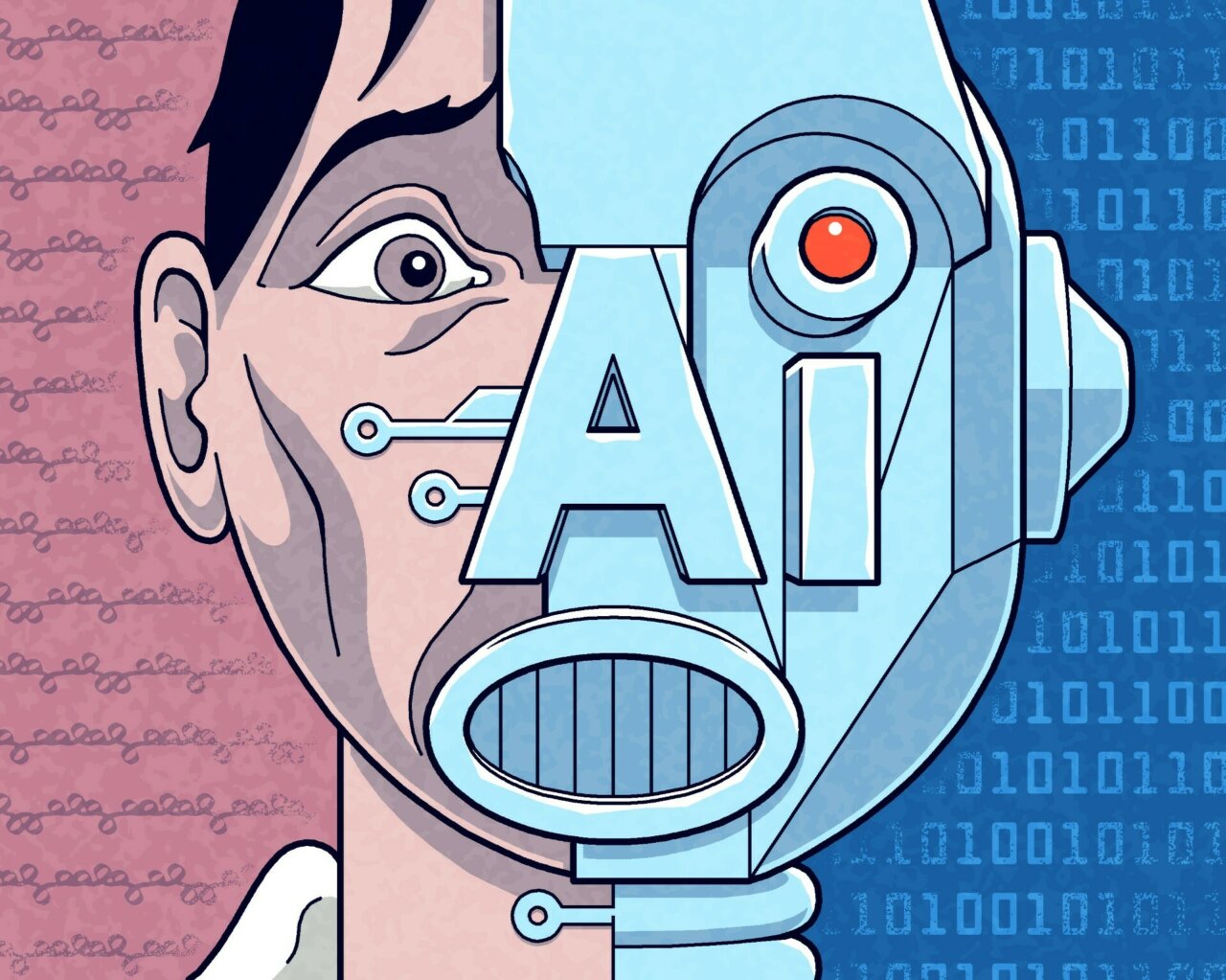Festival Of Debate, 2024.
Louisa Bull, National Officer Graphical, Paper, Media & IT Sector. Unite The Union : AI: Threats & Opportunities For The Media April 25th, 2024 I know other speakers are going to deal much more eloquently with the more high profile dangers we are presently seeing within our creative industries and in particular within news and media sector, with the explosion in generative AI and software programmes such as ChatGPT. So I am not covering any of that although I did want to acknowledge some of the wins our sister unions are having in the US right now, the actors and writers in particular, who have been defending their right to keep the rights on their own voice and their physical identity. They must be congratulated in taking action and winning these fights.
I know other speakers are going to deal much more eloquently with the more high profile dangers we are presently seeing within our creative industries and in particular within news and media sector, with the explosion in generative AI and software programmes such as ChatGPT. So I am not covering any of that although I did want to acknowledge some of the wins our sister unions are having in the US right now, the actors and writers in particular, who have been defending their right to keep the rights on their own voice and their physical identity. They must be congratulated in taking action and winning these fights.
I have worked in our industry since the early 80s and technological change has always been there. But back then it was introduced through consultation and long negotiation with the trade unions.
So why is it different now and why in this digital age have we failed to secure regulation, retain control, and protect human labour when AI and algorithmic management has become normal in the workplace.
I guess it doesn’t matter where you work, whether it be a large publishing house or a small tech start up, your employer will have introduced processes “to make your life easier” and asked you to add some apps to your personal phone so that you can access the HR functions and book holidays, see pay slips etc. But in signing up to this, and most people don’t have a choice then it will be the same as signing up to google or facebook , someone else will be collecting your data, they may be selling it on to a third party and they may be mining what you are doing 24/7.
This is just one example, but we all walk around daily, not turning these apps off on our mobile phones and someone is harvesting what we do, where we go and to a point what we engage with. We have become small mobile AI labs and we don’t know who is monitoring that.
 What we can’t do at the moment with any authority is to demand from our employer what they have done with that data. Under current legislation the right to bargain over that data does not exist.
What we can’t do at the moment with any authority is to demand from our employer what they have done with that data. Under current legislation the right to bargain over that data does not exist.
My work in Unite has given me the opportunity to sit on the TUC AI working group for the last few years and to work with sister unions to create the TUC agenda to provide the tools and knowledge to our union officers and reps to ensure where automation exists it must be subject to consultation, negotiation and transparency and governed by human ethics including being free from discriminatory bias. A great agenda but so far without any teeth.
So earlier this month the TUC launched its draft AI and Employment Bill, a Bill , that is ready to go, if picked up by the next government, and it would regulate how employers used AI at work in relation to our rights as workers and to ensure our interests would be protected in the work place.
So why is algorithmic management so dangerous. Well code is only as good as the person who wrote it and if the creator of the algorithms has themselves some bias albeit perhaps even unconscious bias then the outcomes will be floored. Anyone who has recently applied for a job in any industry but in press or media for sure it will have be done online and it is at this very early stage an algorithm will decide whether you get through to the next stage or not.
Many workers who apply for internal promotion are faced with the same online software and that software is what decides if you are the best fit. But we don’t know what the code is looking for, we can’t tell what bias has been written into it and importantly there is no one to ask, as there has been no human intervention so far into the process. You may not have been looking for a new job recently, but a bank loan a mortgage or any thing else done online, will be done by an AI tool in the same way and not by a human being.
Algorithms should advise, and humans should decide, it is that simple and the AI bill make this an absolute requirement in the workplace.
The other main are of concern is the widespread monitoring and analysis of workers, whether that be assessing the amount of keyboard strokes for a staff worker or managing productivity output of a warehouse operative, it is being done systematically by employers and behind the backs of our members. This results in increased demand in productivity or an analysis on how many staff roles can be removed from the business. Our industry is constantly fighting off redundancies, be it in national newspaper companies like Reach or Publishing houses like OUP they are becoming common place.
More robotics, automation and now generative AI puts jobs at risk and without us, the trade unions, controlling the narrative then we are all in danger of just watching from the sidelines.
The TUC Bill calls for data impact assessments to be conducted in the workplace, so that workers have a statutory right to bargain on these changes and understand the consequential effects on tasks and roles. We do not believe jobs per say will always be replaced but repetitive tasks, language checking, graphic design and audio transfer are some areas already impacted by the technology.
If technology is going to be embraced and our industry has been embracing it for a long time, then we must be advantaged by the changes. We can’t no longer let the technology control us. The call for workers to have the right to disconnect from work has been written into legislation in France and we need that is ourt contracts and collective agreements in the UK. Switching off the mobile phone, not looking at the email can be had so employers have a duty to switch it off at the mains and lead by example.
Finally, the AI digital divide is an offshoot of the broader digital divide – the chasm separating those with access to information and communication technology (ICT) and those without. Access to AI technologies necessitates basic digital infrastructure, including internet connectivity and digital literacy. However, many global regions, particularly developing countries and rural areas, lack this essential infrastructure, which limits their capacity to exploit AI advancements. Even with technology access, digital literacy remains crucial. The competence to utilise and understand AI technologies is as vital as physical access, emphasising the need for digital education and training, particularly for marginalised communities.
For our press & media to continue to flourish on whatever platform, we still need to skill up each new generation and not allow the technology to dumb down what we hear, what we read and what we watch.
